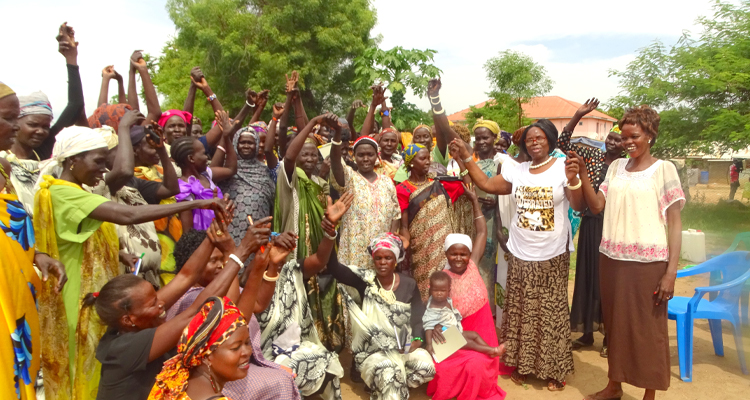OUR APPROACH
OUR APPROACH


Changing people, changing systems, changing society.
Our goal is to enhance potential of "people" to be bearers of peace, develop 'systems' for problem solving, and create a 'society' that can prevent conflict.
We are working with an eye to changing society as a whole, not just for temporary changes.
5 Areas of Expertise
The REALs operates in five areas of expertise, namely; 1) Prevention of Conflict, violent extremism and violence; 2) Co-existence / Social Cohesion; 3) Gender, 4) Psychosocial Support, and; 5) Emergency Assistance.
Prevention of Conflict,
Violent Extremism and Violence
APPROACH
We identify the causes and signs of conflict, terrorism and other forms of violent extremism and social violence, and implement early warning and early response initiatives to prevent them from occurring. For conflicts that have occurred, we will identify and empower human and organizational resources to mediate and resolve them to prevent further deterioration, and put in place sustainable mechanisms for resolution and prevention of recurrence.
ACTIVITIES
- ・Conflict Analysis / Conflict Sensitivity Analysis
- ・Community based Early Warning and Early Response (EWER) system for preventing / mitigating / resolving conflict, violent extremism, violence including Sexual and Gender based violence
- ・Identification and support to combatants (including former), at-risk youth and victims for de-radicalization and reintegration
- ・Counseling service to prevent recruitment of violent extremists groups
- ・Support to national / regional / community strategy to Preventing / countering violent extremism
- ・Training government, police, other security sectors and community members and support joint mechanism
Co-existence / Social Cohesion
APPROACH
To minimize conflicts and violence due to differences in nationality, ethnicity, religion, position, gender, and values, we will identify the factors that overcome divisions in each society and support the people concerned to make their own choices for coexistence and take action. We will ensure that the will to coexist is not imposed from outside, but is born from within society, and create a system to sustain efforts through transfer of expertise.
ACTIVITIES
- ・Training of leaders, women and youth to promote coexistence
- ・Planning and implementation of events and activities to promote coexistence
- ・Co-existence mechanism in multi-ethnic communities, IDP settlements and refugee camps
- ・Training of trainers for skill transfer in the community
- ・Develop inter-group, inter-regional and inter-generational mentoring and coaching structures.
- ・Community awareness-raising
- ・Transfer of expertise to communities, local NGOs, administration and government
- ・Development of training materials for government, administration and communities
Gender
APPROACH
REALs is committed to incorporating a gender perspective in all of its operations. We reach out to women in difficult situations due to conflict and oppression, as well as those affected by Sexual and Gender-Based Violence (SGBV) and survivors, with the support necessary. Rather than assuming that women are victims, we empower both women and men to be practical agents of addressing gender issues and peacebuilding, in accordance with the local context.
ACTIVITIES
- ・Identifying and supporting victims of sexual and gender-based violence (SGBV)
- ・Training of female community leaders, community workers and human resources for prevention of conflict and violence
- ・Introducing a gender perspective into community conflict prevention mechanisms
- ・Establishing consultation services and counseling spaces where people can seek advice on gender issues and sexual violence
- ・Information sharing and improving a referral pathway / network with specialized organizations
- ・Support for gender training and policy implementation for men and women in the police, military, administration, leadership and communities
- ・Awareness raising of the community and society
- ・Development, evaluation and policy recommendations for national action plans for UNSC resolutions on women, peace and security (WPS).
Psychosocial Support
APPROACH
We provide psychosocial support to people who have been victims of conflict, violence and abuse, who have hurt others, and/or who feel isolated in society, to encourage them to find a way to recover. We train people in the region to become community workers and create a system to provide the necessary support on a sustainable basis. By using psychosocial support methods as a tool, we also develop a system for early identification of and response to problems that do not easily emerge, such as Sexual and gender based violence (SGBV) and domestic violence, as well as those who have become or are likely to become responsible for terrorism and violence.
ACTIVITIES
- ・Training of community workers, local trainers and experts
- ・Psychosocial support for individuals and families including outreach, therapy rooms, consultation services and hotlines
- ・Art therapy through creative activities such as painting and music
- ・Information sharing and building a referral pathway/network with specialized organizations
- ・Ensuring sustainable implementation of community workers' activities through support for their economic self reliance.
- ・Improving public support through skills transfer to teachers, administrators, police officers and women's support groups
- ・Community Awareness of Stigma Prevention and Social Awareness
Emergency Assistance
APPROACH
REALs will provide emergency assistance in the form of protection, water, food, infrastructure, non-food items and lifelines when our intervention is able to quickly and efficiently save the lives and livelihoods of people in crisis situations.
n areas where conflict and violence are likely to worsen as a result of climate change, we will use our early warning and early response expertise to develop prevention, mitigation and immediate response.
ACTIVITIES
- ・Emergency assistance to refugees and internally displaced persons (IDPs) including food, non-food items, water and sanitation, shelter etc.
- ・Identification and protection of at-risk groups (single mothers, children, elderly, minorities etc)
- ・Provide legal support and information to refugees and IDPs.
- ・Construction of facilities for water and sanitation, protection etc.
- ・Establishment of child friendly spaces for refugee and IDPs
- ・Capacity building for skill transfer and facility maintenance to local communities
- ・Training of local leaders, residents and government for peaceful use of equipment
- ・Disseminating disaster countermeasures, hygiene and human rights awareness to the community





